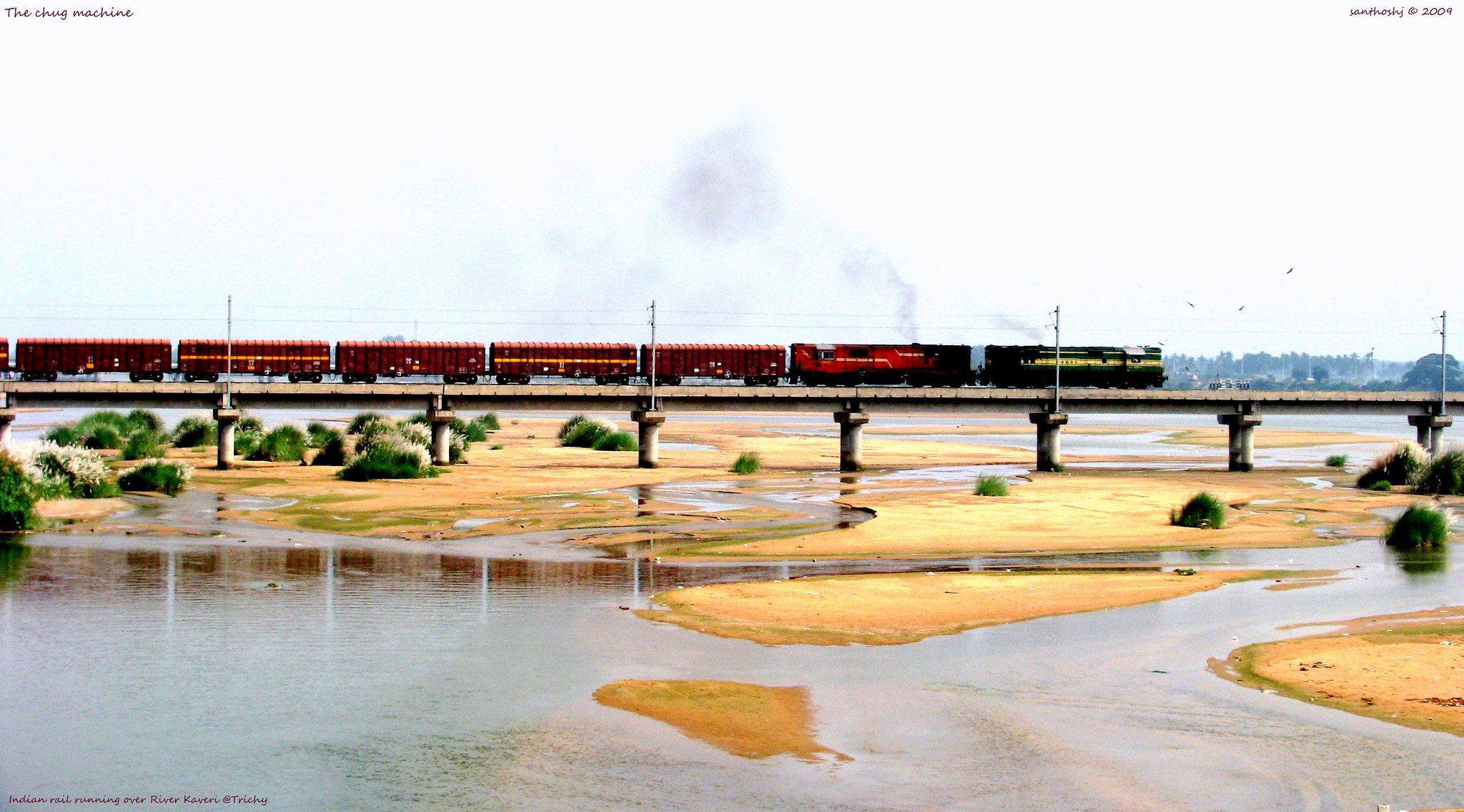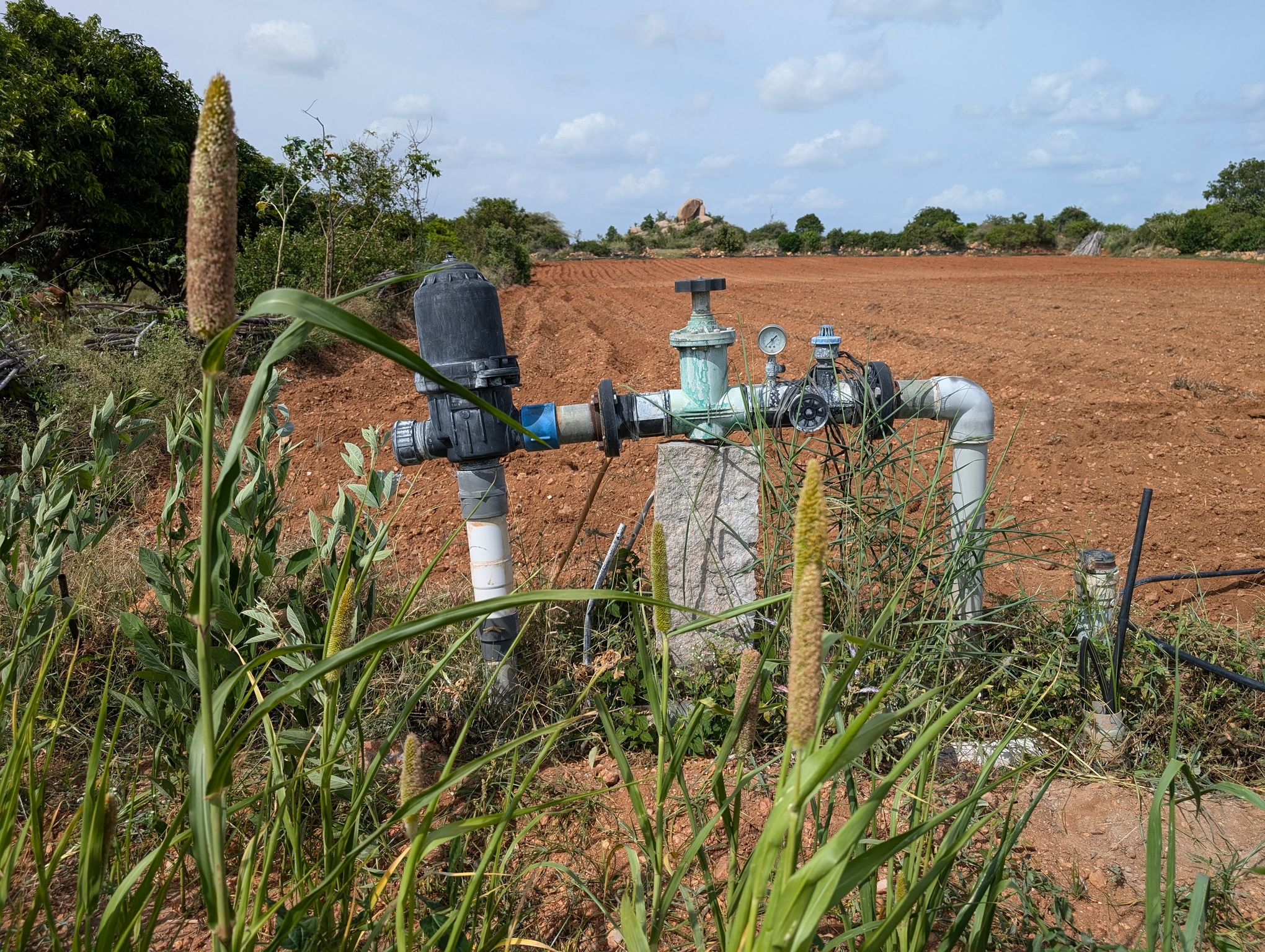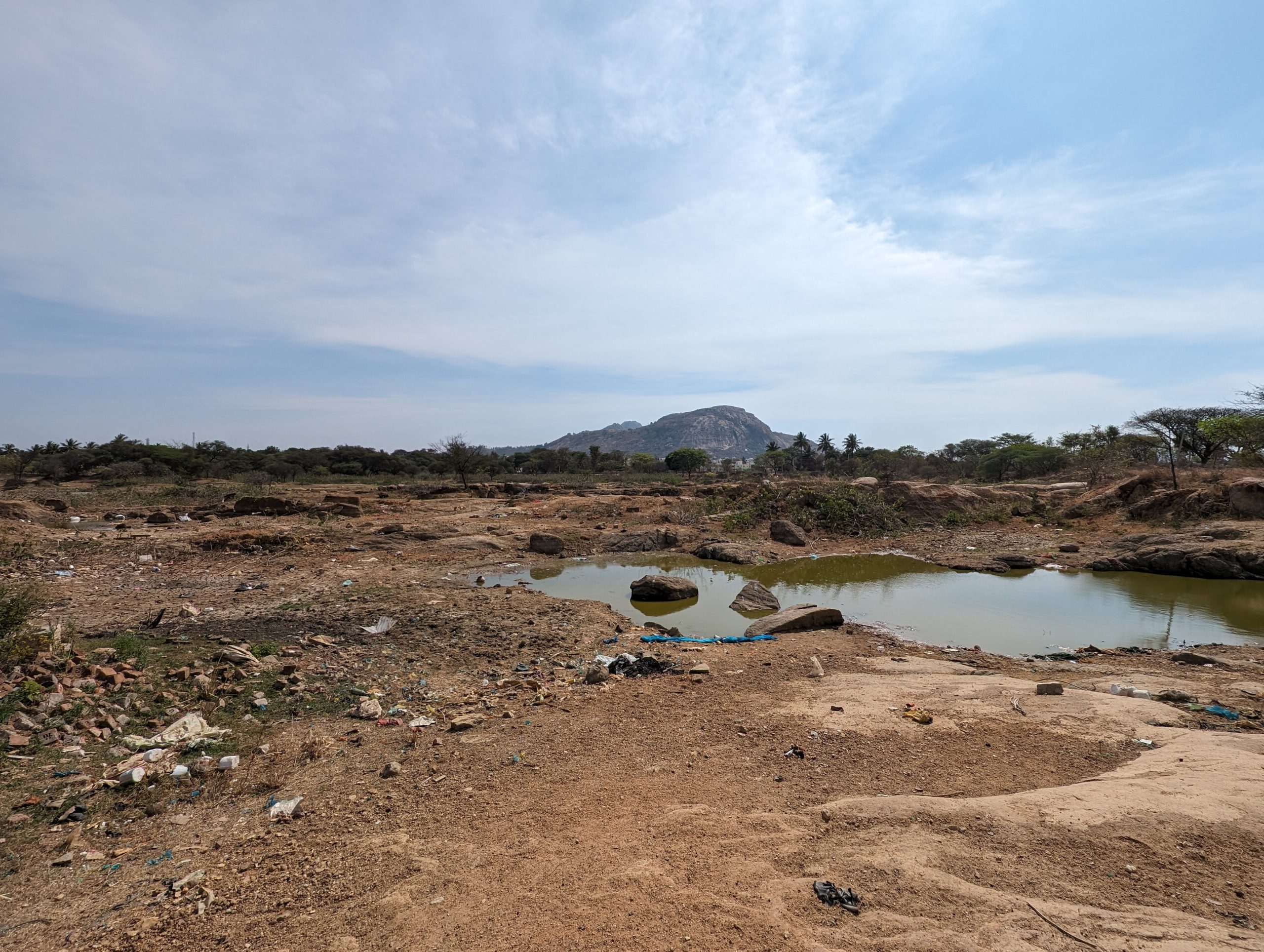Chasing the Water Table: The Impact of Groundwater Depletion on Rural Drinking Water Supply in Peninsular India
Photo: A borewell connected to a local piped irrigation network in Kadiri, Andhra Pradesh. Credit: Nabina Chakraborty
Groundwater overexploitation has been cited as one of the biggest threats to rural drinking water in India, but there is very little quantitative evidence on the risks to source sustainability.
In this paper, we aim to understand (1) the extent of actual groundwater depletion and its impact on rural water supply systems, (2) the primary driver of groundwater depletion and (3) the additional financial burden in finding new sources for water supply, relying on temporal data from two Gram Panchayats (local administrative unit) in the Upper Arkavathy watershed near Bengaluru, in south India.
Study results confirm that groundwater depletion, in this hard rock aquifer region, is a severe problem, driven largely by agricultural water abstraction. Rural water supply systems have had to catch up continuously with the falling water table, abandoning non-functional wells and drilling new borewells to replace them. This has resulted in a major financial burden to the Gram Panchayats.
Hitherto, state and central government grants have paid for rural well installation in India, but the increased pumping costs associated with declining groundwater levels impose a major burden on Gram Panchayats, many of which are severely in “electricity debt”.
Fill these details to access the publication
Acknowledgements
Authors Veena Srinivasan, Lakshmikantha NR, Manjunatha G, Ganesh Nagnath Shinde
Published by PLOS Water
Suggested Citation Srinivasan V, NR L, G M, Shinde GN (2025) Chasing the water table: The impact of groundwater depletion on rural drinking water supply in peninsular India. PLOS Water 4(4): e0000138. https://doi.org/10.1371/journal.pwat.0000138
Uploaded by Syed Saad Ahmed
If you would like to collaborate with us outside this project, write to us. We would love to hear from you.
Follow us and stay updated about our work:






